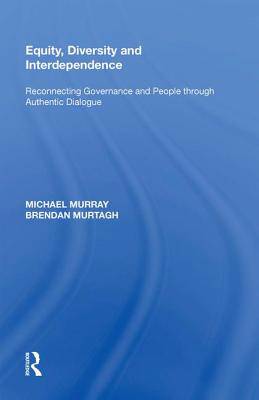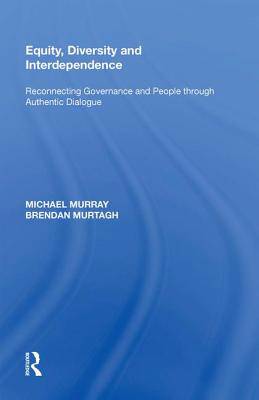
- Afhalen na 1 uur in een winkel met voorraad
- Gratis thuislevering in België vanaf € 30
- Ruim aanbod met 7 miljoen producten
- Afhalen na 1 uur in een winkel met voorraad
- Gratis thuislevering in België vanaf € 30
- Ruim aanbod met 7 miljoen producten
Zoeken
Equity, Diversity and Interdependence
Reconnecting Governance and People Through Authentic Dialogue
Michael Murray
Hardcover | Engels
€ 195,95
+ 391 punten
Uitvoering
Omschrijving
If civil society is being encouraged to more fully embrace inclusiveness and respect for diversity, then so must the multiplicity of service support organizations with which it interacts. This is the key proposition behind this seminal contribution to public policy. While legislation can ensure minimum standards of behaviour and outcomes, meaningful organizational progression beyond legal imperatives requires authentic dialogue, based on principles of equity, diversity and interdependence. These are essential components for deeper societal transformation. Using the divided society of Northern Ireland as a case study, and its rural governance arena in particular, this book provides an authoritative empirical analysis of, and prescriptive agenda for, collaborative conversations. The insights provided by this book go far beyond this region and have a profound relevance for other societies struggling to emerge from conflict, racism and social separation.
Specificaties
Betrokkenen
- Auteur(s):
- Uitgeverij:
Inhoud
- Aantal bladzijden:
- 184
- Taal:
- Engels
Eigenschappen
- Productcode (EAN):
- 9780815388845
- Verschijningsdatum:
- 29/11/2017
- Uitvoering:
- Hardcover
- Formaat:
- Genaaid
- Afmetingen:
- 152 mm x 235 mm
- Gewicht:
- 335 g

Alleen bij Standaard Boekhandel
+ 391 punten op je klantenkaart van Standaard Boekhandel
Beoordelingen
We publiceren alleen reviews die voldoen aan de voorwaarden voor reviews. Bekijk onze voorwaarden voor reviews.











